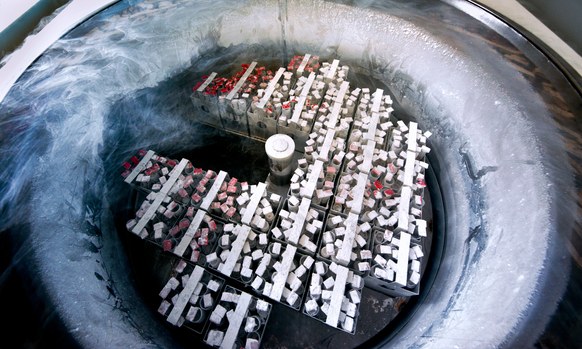Difference between revisions of "About"
| Line 1: | Line 1: | ||
Collaborative workshop with Helen Pritchard, Jara Rocha and Laura Benítez in the framework of the Biennal del Pensament. | Collaborative workshop with Helen Pritchard, Jara Rocha and Laura Benítez in the framework of the Biennal del Pensament. | ||
| − | As genetically engineered organisms “designed” as computer components are enrolled into environmental becomings of | + | As genetically engineered organisms “designed” as computer components are enrolled into environmental becomings of remediation, and our wild fantasies of (micro)bio-analytics generating lively capital proliferate, technoenvironmental entanglements and their political fictions are invoking practices at a worldmaking scale. Envirocomputing and its production of new ecological arrangements stretches far out beyond the lab –exploiting intensively the lively labours and frictions of nonhuman animals and organisms through ever-accelerating affective, semiotic and material practices.Our co-compositions/becoming-with both the internet and other digital informational networks and/or devices are ever more entangled strongly in our situated nonlocal “we”s. These scenes exploit nonhuman organisms to sustain particular modes of living, however these exploitations also create opportunities for reparations and for creative contestation–provoking an urgency to queer the how-tos! Our collective challenge is that queer technoscience is nowhere near queer enough as a research practice and needs some anthronormativies radically taken apart from itself. |
In a one-day workshop, we will gather temporarily to wonder together about the potential queer analytics of microbial, animal, plant, mineral, cosmological technoscience, situating ourselves in these mundane and alluring scenes– as an invitation to consider these labours and imagine a collective life otherwise. We will ponder the possibilities and limitation of informatics; and will take seriously the affective forces of nonhuman animals and machines. We ask how might we extend queer theories that concern personal injury into more- than- human ensembles in order to consider the damages shared by humans and nonhumans? How can we generate ways that take us beyond reparative narratives or benevolent utopianism towards more-than-human life? | In a one-day workshop, we will gather temporarily to wonder together about the potential queer analytics of microbial, animal, plant, mineral, cosmological technoscience, situating ourselves in these mundane and alluring scenes– as an invitation to consider these labours and imagine a collective life otherwise. We will ponder the possibilities and limitation of informatics; and will take seriously the affective forces of nonhuman animals and machines. We ask how might we extend queer theories that concern personal injury into more- than- human ensembles in order to consider the damages shared by humans and nonhumans? How can we generate ways that take us beyond reparative narratives or benevolent utopianism towards more-than-human life? | ||
Revision as of 12:50, 22 October 2018
Collaborative workshop with Helen Pritchard, Jara Rocha and Laura Benítez in the framework of the Biennal del Pensament.
As genetically engineered organisms “designed” as computer components are enrolled into environmental becomings of remediation, and our wild fantasies of (micro)bio-analytics generating lively capital proliferate, technoenvironmental entanglements and their political fictions are invoking practices at a worldmaking scale. Envirocomputing and its production of new ecological arrangements stretches far out beyond the lab –exploiting intensively the lively labours and frictions of nonhuman animals and organisms through ever-accelerating affective, semiotic and material practices.Our co-compositions/becoming-with both the internet and other digital informational networks and/or devices are ever more entangled strongly in our situated nonlocal “we”s. These scenes exploit nonhuman organisms to sustain particular modes of living, however these exploitations also create opportunities for reparations and for creative contestation–provoking an urgency to queer the how-tos! Our collective challenge is that queer technoscience is nowhere near queer enough as a research practice and needs some anthronormativies radically taken apart from itself.
In a one-day workshop, we will gather temporarily to wonder together about the potential queer analytics of microbial, animal, plant, mineral, cosmological technoscience, situating ourselves in these mundane and alluring scenes– as an invitation to consider these labours and imagine a collective life otherwise. We will ponder the possibilities and limitation of informatics; and will take seriously the affective forces of nonhuman animals and machines. We ask how might we extend queer theories that concern personal injury into more- than- human ensembles in order to consider the damages shared by humans and nonhumans? How can we generate ways that take us beyond reparative narratives or benevolent utopianism towards more-than-human life?
We look to provide ourselves with a queer “doing” within sinister computed environments and instead of focusing on a co-flourishing of humans and nonhumans, we propose that we might pay attention to the damage, injury, harms and constraints placed on the possibilities of life and brought about through informatics/technosciences. If we focus on a genealogy of injury in queer studies, can we recognise a willingness to investigate darker aspects of experience? How might we reroute the frictions of queering technoscience as something that engages with the powerful negativity of queer as a form of punk politics rather than an established boundary or focus on sex practices of ontologically secure essentially fixed bodies . This workshop is hence proposed as a collective how-to composition for partially reparative research – without guarantee!! . Absolutely dependant on the harms and methodological difficulties that each participant brings with her.
This workshop is Anti-Copyright It will happen in English
